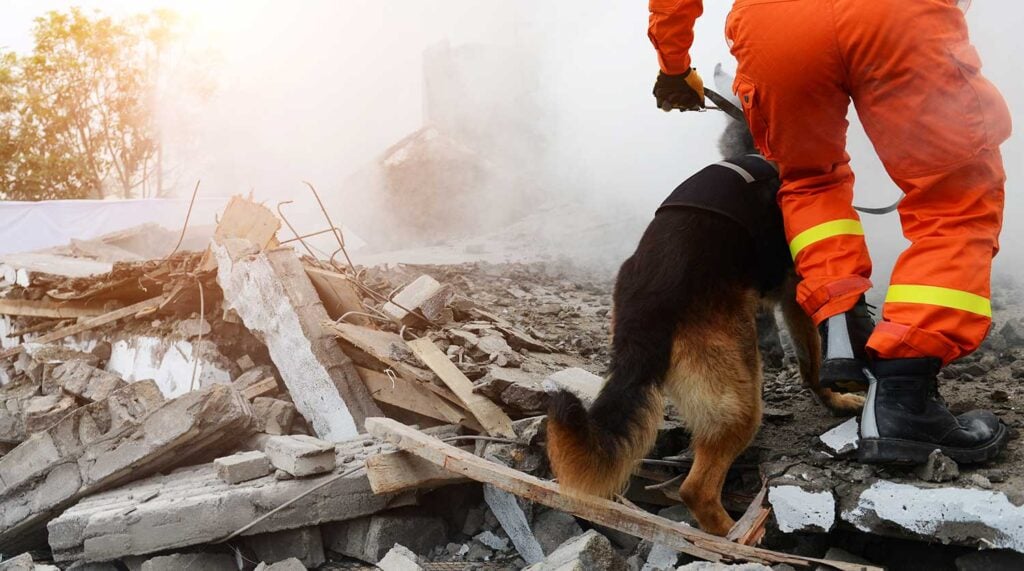Collateral Damage: How Passing the American Data Privacy and Protection Act Would Undermine Natural Disaster Response and Recovery
October 18, 2022

By: Jason Sarfati, Chief Privacy Officer & VP Legal, Gravy Analytics
Last month, many of us were glued to the images of the devastation and destruction caused by Hurricane Ian as it tore through Florida and the Carolinas, resulting in power and water outages for hundreds of thousands of households, property damage in the billions of dollars, and the priceless loss of lives.
As government agencies and humanitarian groups work to help those hit hardest by the storm, what many may not hear about is the work the location data industry has done—and continues to do—to support natural disaster planning, response, and recovery.

In the midst of this, Congress is currently working on a federal privacy bill called the American Data Privacy and Protection Act (ADPPA). While we at Gravy wholly support a comprehensive federal privacy law and believe this is long overdue for our industry, as currently written, Section 102(3)(D) of the ADPPA would require government agencies, like FEMA and DHS, to terminate their contracts with the location data industry. If passed, this provision would unnecessarily endanger all Americans who live in areas that are vulnerable to natural disasters, without advancing the privacy interests of those individuals.
Natural disasters like Hurricane Ian are becoming more frequent and intense, posing a greater threat to vulnerable communities than ever before. It’s for this reason, we believe the incredibly valuable work the location data industry does to support natural disaster management efforts should not be cut short. If the ADPPA in its current form becomes law, it will be cut off entirely.
How Location Data Is Used in Emergency Management
Location data provides insight into human movement patterns in the physical world. When we analyze pseudonymous location signals from mobile devices, we can learn how people, products, and materials move throughout the world. While these insights are beneficial to businesses, location data is also an invaluable resource for emergency managers working to mitigate damage caused by natural disasters.
Increasing our understanding of how and where people evacuate during a disaster is one of the best ways to lower risk and enhance safety in areas that are vulnerable to natural disasters. With location analytics, leaders can obtain invaluable insight into the movement of local residents before, during, and after a disaster in order to better understand evacuation behaviors. With this knowledge, emergency managers can better plan for a disaster, and when one does strike, they can direct the efforts of first responders based on how residents in a certain community are known to react during times of crisis, and deploy life-saving services to the areas that need it most.
The Location Data Industry’s Impact
The location data industry has historically provided instrumental support to the federal government for natural disaster planning, response, and recovery in key areas like evacuation route planning and improvement, as well as by identifying hard to reach areas that require additional resources.
Today, evacuation plans have already been revised thanks to the federal government’s use of rich location datasets to identify how and where people flee. These lessons are then applied to future natural disasters, thus enabling first responders and emergency planners to have the greatest level of insight on where to place resources.
For example, the location data industry helped support the revision and improvement of evacuation plans following Hurricane Michael, which struck the Florida Panhandle region in 2018. These lessons were later applied to Hurricane Ian in 2022. Because of the important work performed by the location data industry over the last four years, individuals living in hurricane zones are today safer than ever.
The Adverse Effects of the ADPPA on Natural Disaster Response and Recovery
As Congress continues to contemplate the American Data Privacy and Protection Act, we implore legislators to consider the adverse effects this proposed law would have on natural disaster response and recovery. If government agencies, such as FEMA and DHS, are not able to access location data and human mobility analytics, the incredible progress the location data industry has made in recent years to improve emergency management would evaporate overnight. As storms continue to grow in intensity and frequency, and more and more people are impacted by the destruction of these disasters, now is the time to strengthen support for this important issue, not undermine it.




